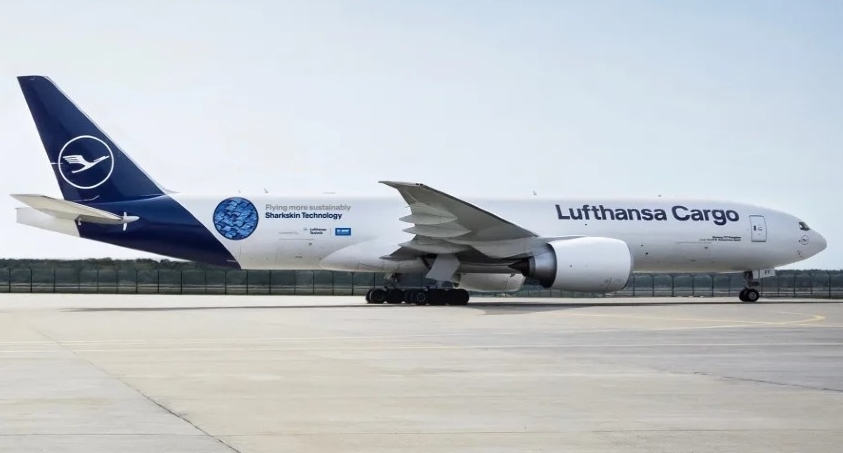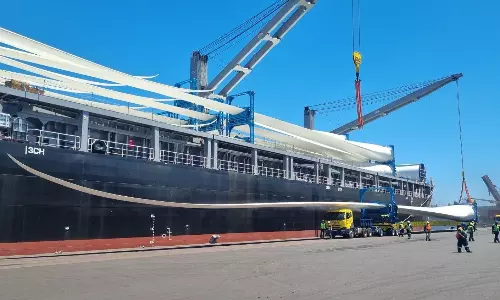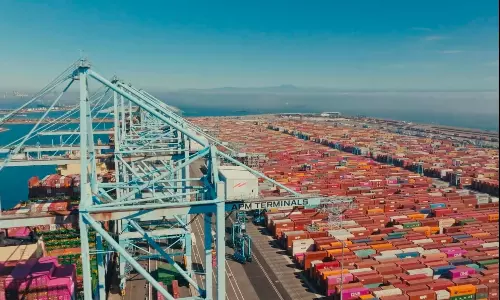Lufthansa Cargo, BASF roll out AeroSHARK to meet sustainability targets
From 2022, Lufthansa Cargo will equip all B777 freighters with AeroSHARK, an innovative surface technology from Lufthansa Technik and BASF to improve fuel efficiency and help airlines to reach sustainability targets.;

May 04, 2021: From 2022, Lufthansa Cargo will equip all B777 freighters with AeroSHARK, an innovative surface technology from Lufthansa Technik and BASF to improve fuel efficiency and help airlines to reach sustainability targets.
AeroSHARK, a surface film that mimics the fine structure of a shark’s skin, is to be rolled out on Lufthansa Cargo’s entire freighter fleet from the beginning of 2022, making the aircraft more economical and reducing emissions.
The surface structure consisting of riblets measuring around 50 micrometres imitates the properties of sharkskin and therefore optimises the aerodynamics on flow-related parts of the aircraft. This means that less fuel is needed overall. For Lufthansa Cargo’s B777F freighters, Lufthansa Technik estimates a drag reduction of more than one percent. For the entire fleet of ten aircraft, this translates to annual savings of around 3,700 tonnes of kerosene and just under 11,700 tonnes of CO2 emissions, which is the equivalent of 48 individual freight flights from Frankfurt to Shanghai.
Christina Foerster, member of the executive board of Deutsche Lufthansa AG, said, “We have always played a leading role in introducing environmentally friendly technologies. The new sharkskin technology for aircraft shows what strong and highly innovative partners can achieve collectively for the environment. This will help us to achieve our goal of climate neutrality by 2050.”
In its cooperation with BASF, Lufthansa Technik is responsible for the material specification, approval by the aviation authorities and performance of aircraft modifications carried out as part of regular maintenance layovers. Backed by decades of experience as an approved aviation design organisation, the company will obtain a Supplemental Type Certificate (STC) for the 777F from the European Union Aviation Safety Agency (EASA), which is required for operation.
“The aviation industry is facing similar challenges to the chemical industry: ongoing progress must be made with climate protection despite high energy requirements. By collaborating closely and successfully combining our know-how in surface design and aerodynamics, we have now succeeded in taking a major step forward,” said Markus Kamieth, member of the board of executive directors of BASF.



